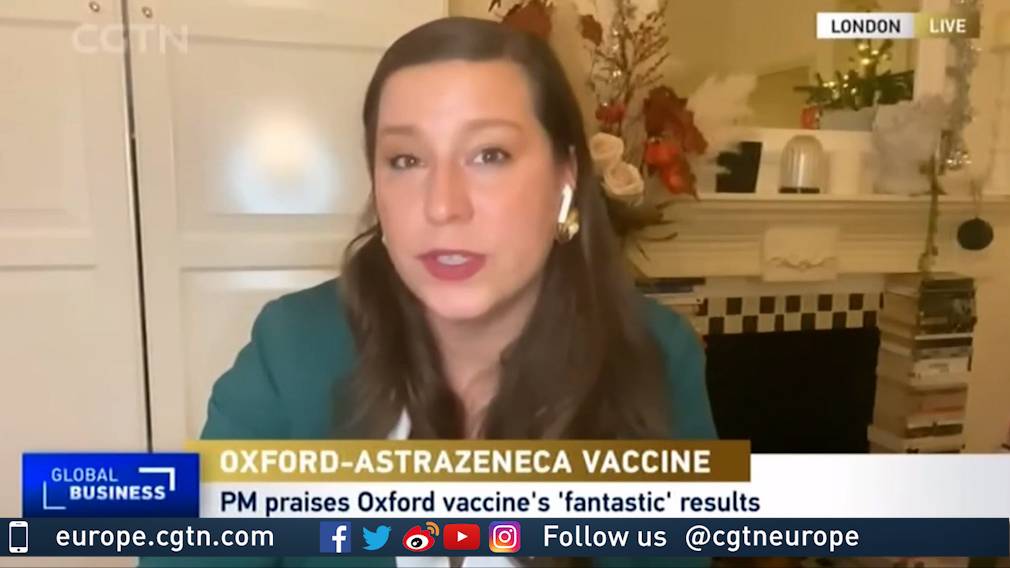06:25

The cost to richer countries of not helping people in poorer countries get vaccinated against COVID-19 would be higher in the end, says Oksana Pyzik, from University College London's School of Pharmacy.
The lecturer was speaking after a third vaccine – from Oxford University and pharmaceutical firm AstraZeneca – announced positive results from their trials of a jab that could help bring the COVID-19 pandemic to an end.
With three European and U.S. vaccines now looking on course to get the go-ahead from regulators for widespread use in the next few weeks, attention has been turning to who will get the vaccines, and who will get protection first.
The World Health Organization has a COVAX program designed to ensure the vaccinations happen on a global basis, rather than being restricted to wealthier countries. Its aim is to have 2 billion doses available by the end of 2021.
Pyzik told CGTN Europe: "When we have a global pandemic, it makes no sense to only immunize high-income countries for it to run rampant in low-income countries, only for it to spread across the borders, reseed infections and prolong the pandemic.
"The cost of that is actually greater."

The need to store the Pfizer/Biontech vaccines at minus 70 degrees Celcius would be problematic in many low- and middle-income countries "where there already exists quite fragile pharmaceutical supply chains," she said.
And although the Moderna vaccine has more flexibility – it needs to be frozen but not at such low temperatures and can survive for longer when not frozen – she said the AstraZeneca/Oxford one is "really the vaccine for the world," because it is cheaper and more suited to existing supply chains in low- and middle-income countries.
Pyzik said that security of global supply chains would also need to be tight, saying that "each point in which the vaccine changes hands is a potential risk point," citing figures from the WHO suggesting one in 10 medicines worldwide is substandard either because of poor storage or because of organized criminal groups falsifying the medicines.
"It is quite complicated and with very globalized supply chains ... those are all factors that we're going to have to consider in how to ensure that it is a distributed quickly, stored safely, and really to reduce any threats associated with supply chain as well."
She added: "Currently there are 210 vaccine candidates at different stages of development and this is being also coordinated by the WHO. There are 47 that are in human phases and 10 that are currently in phase 3 trials. So we expect to see in the next couple of months what their results might be.
"Really, when we think about the vaccine pool, this is very robust – typically we would not see this many candidates, however there is a 'valley of death' as they call it, in terms of success rates, and vaccines typically only have about a 10 percent success rate in development stages.
"So all of this, I think, has exceeded a lot of scientists' expectations in terms of rate and in terms of efficacy levels, which is excellent news, but there are going to be all sorts of other challenges ahead."

